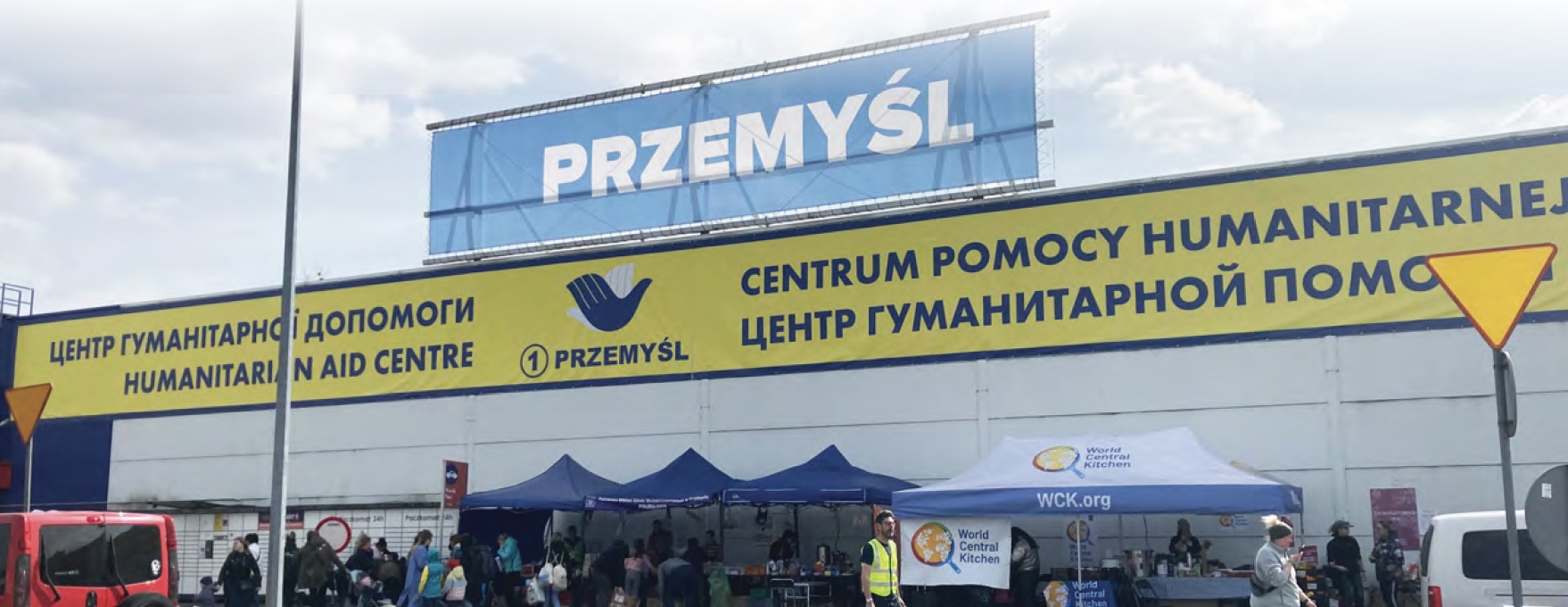A panel organized by Anna Tumarkin and devoted to the topic of providing humanitarian aid to Ukrainians displaced by the war who have crossed the border into Poland was held on the afternoon of November 1, 2022. Two panelists, who both spent part of their summer volunteering at the Center for Humanitarian Aid in Przemyśl, Poland (a city about 50 miles from Lviv, Ukraine), are current UW-Madison colleagues: Dianna Murphy, Director of UW-Madison’s Language Institute, and Anna Tumarkin, the Russian Language Program Director in Slavic Studies and herself a native of Lviv. Kari Anderson, the third panelist, graduated from UW-Madison in the mid-2000s with a degree in Russian Language and Literature and is affiliated with Operation SafeDrop, an arm of the Making a Difference Foundation that is devoted to providing assistance to displaced Ukrainians. Operation SafeDrop has been working on the ground at the Polish-Ukrainian border and in Western Ukraine since early March of this year.
Panelists provided a vivid picture of the horrific impact of the war on Ukrainian citizens and shared personal experiences working with displaced individuals and families at the Przemyśl center. Specific topics that the panelists touched upon, partly in answer to questions from panel attendees, included: how each came to volunteer at the center, the types of people who have been displaced by the war and who were seeking refuge in Poland and other countries, the immediate needs these refugees had when they arrived in Poland as well as the pathways that were available to them once they reached the aid center, and how the situation on the ground has changed from earlier this year to the present day. A strong theme in the panelists’ account was the necessity for center volunteers to possess language skills—in Ukrainian, Polish, Russian—to be able to effectively communicate (and also empathize) with the displaced individuals as well as to serve as interpreters for those individuals as they talked with representatives of countries that were offering refuge for people fleeing the war.
The discussion was sponsored by GNS+, the Russian Flagship Program, CREECA, and the Language Institute.
